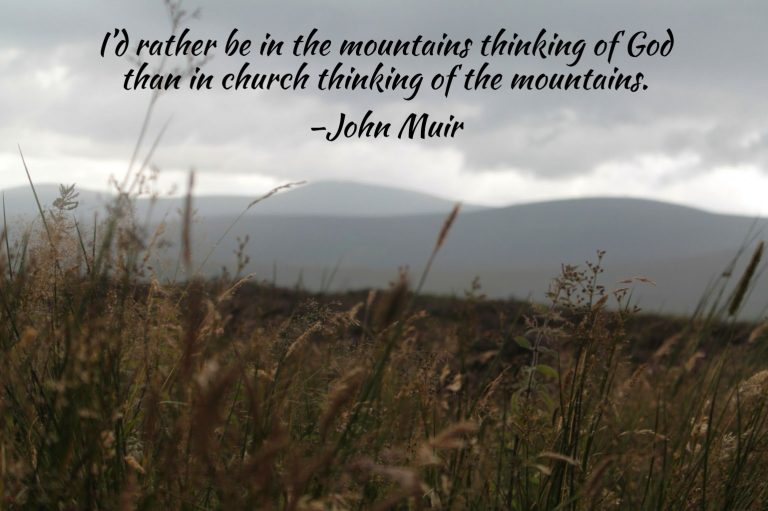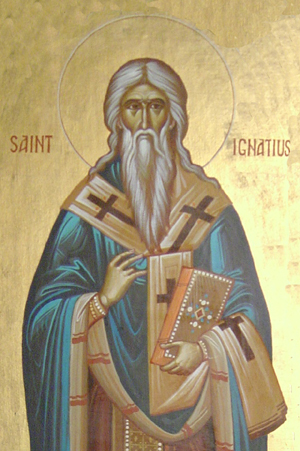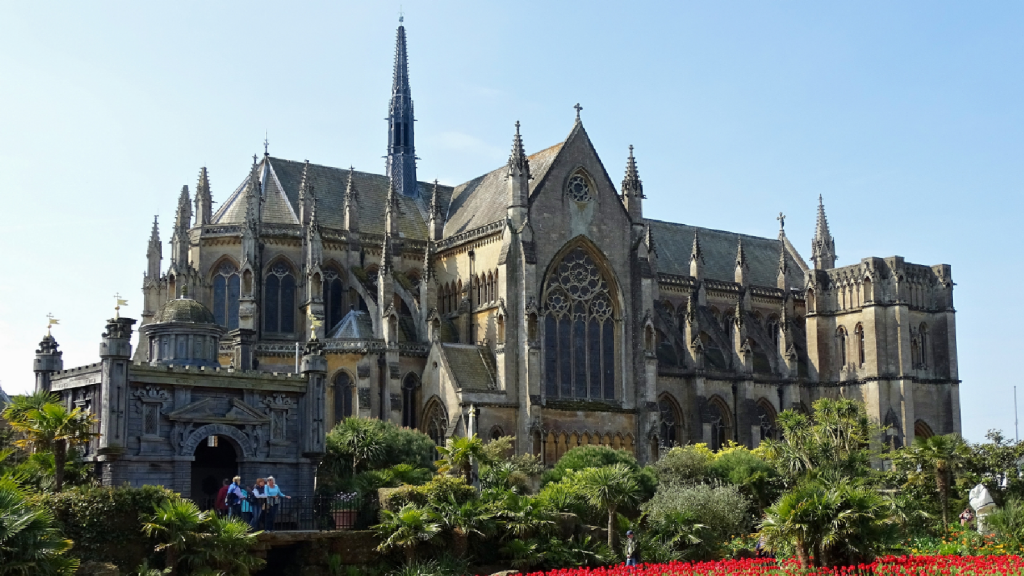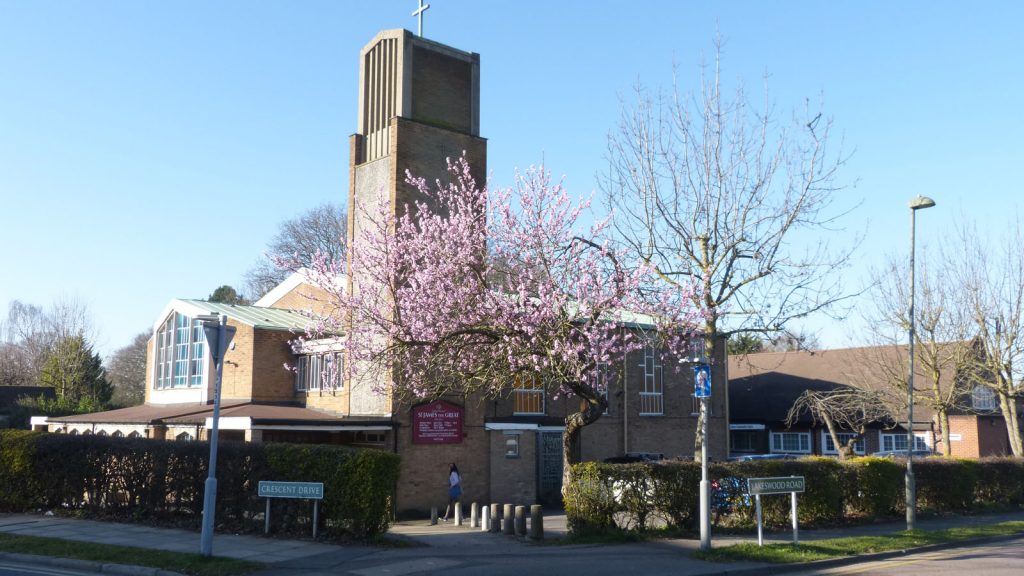Churches of the Day
Pictorial Thought for Today

Oct 17 - St Ignatius of Antioch (c.37-107) bishop and martyr
Patrick Duffy reminds us here what is known about him.
Bishop of Antioch
 The city of Antioch on the Orontes was founded in 300 BC by Seleucus I, king of Syria, and named for his father Antiochus Soter, a Macedonian general. It was one of the largest in the Roman Empire. It was a key location during the early years of Christianity, and it was there that "the disciples were first called 'Christians' (Acts 11:26). Ignatius was the second or third bishop there. During the reign of the Emperor Trajan (98-117), when he was already an old man, he was brought to Rome under military guard.
The city of Antioch on the Orontes was founded in 300 BC by Seleucus I, king of Syria, and named for his father Antiochus Soter, a Macedonian general. It was one of the largest in the Roman Empire. It was a key location during the early years of Christianity, and it was there that "the disciples were first called 'Christians' (Acts 11:26). Ignatius was the second or third bishop there. During the reign of the Emperor Trajan (98-117), when he was already an old man, he was brought to Rome under military guard.Letters
On the way Ignatius stopped at Smyrna, where he was able to meet St Polycarp, then a young man. From Smyrna, he wrote four letters: to the churches at Ephesus, Magnesia, Tralles and Rome. At Troas, he wrote his remaining letters to Polycarp and to the churches of Philadelphia and Smyrna.
In the Letters, Ignatius Stresses:
The humanity, the flesh and blood character, of Jesus as redeemer: "truly nailed up in the flesh for our sakes under Pontius Pilate and Herod the tetrarch" (Smyrnaens 1:2);
The reality of his presence in the Eucharist: "Take note of those who hold strange opinions on the grace of Jesus Christ which has come to us, and see how contrary their opinions are to the mind of God. . . . They abstain from the Eucharist and from prayer because they do not confess that the Eucharist is the flesh of our Saviour Jesus Christ, flesh which suffered for our sins and which that Father, in his goodness, raised up again. They who deny the gift of God are perishing in their disputes" (Smyrnaeans 6:2–7:1);
The bishop as the focal point of the unity of the Church: "Wherever the bishop appears, there let the people be; as wherever Jesus Christ is, there is the Catholic Church. It is not lawful to baptize or give communion without the consent of the bishop. On the other hand, whatever has his approval is pleasing to God. Thus, whatever is done will be safe and valid" (Smyrnaeans 8:2).
Longing for Martyrdom
On his way to Rome, Ignatius's only fear was that the Romans might find a way to stop his martyrdom. He leaves them in no doubt as to what he wanted:
Let me be given to the wild beasts, for through them I can attain unto God. I am God's wheat, and I am ground by the teeth of wild beasts that I may be found pure bread [of Christ.] Rather entice the wild beasts, that they may become my sepulchre and may leave no part of my body behind, so that I may not, when I am fallen asleep, be burdensome to any one. Then shall I be truly a disciple of Jesus Christ, when the world shall not so much as see my body. Ask the Lord for me, that through these instruments I may be found a sacrifice to God (Romans 4:1-2).

Death and Influence
Not long after his arrival in Rome he won his long-coveted crown of martyrdom when he was thrown to the wild animals in the Colosseum. His name is included in the Roman Canon (First Eucharistic Prayer).
____________________________________
******************************
Memorable Sayings for Today
“Nobody stumbles into godliness, ever. It simply doesn’t happen.
There is no autopilot mode for the Christian life.
We never see people in the Bible growing in godliness by coasting along.”
~ Matt Chandler ~
******************************
Friday of the Twenty Eighth Week in Ordinary Time, Cycle 1
Grace is a gift given to us absolutely freely by God
Saint of the Day: Oct 17th; Memorial of St Ignatius of Antioch, bishop, an advocate for church unity and the Eucharist, martyred in Rome around 107
C/f A short history of today’s saint can be found below today’s Readings and Reflection.
FIRST READING
A reading from the letter of St Paul to the Romans 4:1-8
Abraham put his faith in God, and this faith was considered as justifying him.
 What shall we say about Abraham, the ancestor from whom we are all descended. If Abraham was justified as a reward for doing something, he would really have had something to boast about, though not in God's sight because scripture says: Abraham put his faith in God, and this faith was considered as justifying him.
What shall we say about Abraham, the ancestor from whom we are all descended. If Abraham was justified as a reward for doing something, he would really have had something to boast about, though not in God's sight because scripture says: Abraham put his faith in God, and this faith was considered as justifying him. If a man has work to show, his wages are not considered as a favour but as his due; but when a man has nothing to show except faith in the one who justifies sinners, then his faith is considered as justifying him.
And David says the same: a man is happy if God considers him righteous, irrespective of good deeds:
Happy those whose crimes are forgiven, whose sins are blotted out; happy the man whom the Lord considers sinless.
The Word of the Lord. Thanks be to God.
Responsorial Psalm Ps 31: 1-2, 5. 11, R/v 7
Response You are my refuge, O Lord; you fill me with the joy of salvation.
1. Happy the man whose offence is forgiven, whose sin is remitted.
O happy the man to whom the Lord imputes no guilt. in whose spirit is no guile. Response
2. But now I have acknowledged my sins; my guilt I did not hide.
I said: ‘I will confess my offence to the Lord.' And you, Lord, have forgiven the guilt of my sin. Response ~
3. Rejoice, rejoice in the Lord, exult, you just! and come, ring out your joy, all you upright of heart. Response
Gospel Acclamation Ps 18: 9
Alleluia, alleluia!
Your words gladden the heart, O Lord, they give light to the eyes.
Alleluia!
Or Ps 32: 22
Alleluia, alleluia!
May your love be upon us, O Lord, as we place all our hope in you.
Alleluia!
GOSPEL
The Lord be with you. And with your spirit
A reading from the holy Gospel according to Luke 12:1-7 Glory to you, O Lord.
Every hair on your head has been counted.
The people had gathered in their thousands so that they were treading on one another.
And Jesus began to speak, first of all to his disciples.

'Be on your guard against the yeast of the Pharisees-that is, their hypocrisy.
Everything that is now covered will be uncovered, and everything now hidden will be made clear. For this reason, whatever you have said in the dark will be heard in the daylight, and what you have whispered in hidden places will be proclaimed on the housetops.
'To you my friends I say:
Do not be afraid of those who kill the body and after that can do no more.
I will tell you whom to fear: fear him who, after he has killed, has the power to cast into hell. Yes, I tell you, fear him. Can you not buy five sparrows for two pennies? And yet not one is forgotten in God's sight. Why, every hair on your head has been counted.
There is no need to be afraid: you are worth more than hundreds of sparrows.'
The Gospel of the Lord. Praise to you, Lord Jesus Christ.
****************************************
Gospel Reflection Friday, Twenty Eighth Week in Ordinary Time Luke 12:1-7
We need to keep praying that world leaders will have the wisdom and the courage to take decisions to protect the natural environment for future generations. In 'Laudato Si’, The late Pope Francis asked a very important question:
‘What kind of world do we want to leave to those who come after us, to children who are now growing up?’ (LS, 160)
This is the same question being asked of us right now by the young people of the world. The Archbishop of Dublin has said,
‘This generation of adults has a serious responsibility to hand on a habitable planet to the next generation’. Our respect for the environment is an essential dimension of our Christian faith. As Christians we believe that there is an intimate relationship between the natural world and God, its Creator.
In today’s gospel reading, Jesus comments on this relationship between God and nature, declaring that ‘not one (sparrow) is forgotten in God’s sight’. God remembers the smallest of his creatures, according to Jesus, calling them to mind, caring for them. We are called to give expression to God’s caring remembrance of creation and all creatures. Jesus goes on to say that if God holds the humble sparrow in his care, how much more does God care for us who are worth more than hundreds of sparrows.
The men and women of our world have a unique place in God’s heart, which is why the cry of the earth can never be separated from the cry of humanity, especially the cry of the poor. Jesus encourages us to entrust ourselves to God, our Father, our Creator, who loves us through and through, and who, therefore, knows us through and through. As Jesus says there, ‘every hair on your head has been counted’. Our trusting, loving, relationship with God the Creator is an opening for the Creator God to work through us to care for and protect our natural environment.
__________________________________
The Scripture Readings are taken from The Jerusalem Bible, published 1966 by Darton, Longman & Todd Ltd. and used with the permission of the publishers. http://dltbooks.com/ The Scripture Reflection is made available with our thanks from Reflections on the Weekday Readings : Your word is a lamp for my feet and light for my path by Martin Hogan and published by Messenger Publications c/f www.messenger.ie/bookshop/
____________________
Saint of the day: Oct 17 St Ignatius of Antioch
Ignatius of Antioch, is also called "Theophoros", meaning "God-bearer" and was an early martyr, who is best known from the seven letters he wrote to various churches in Asia Minor with his strong theology of the humanity of Jesus and his presence in the Eucharist. He also promoted the role of the bishop as a figure of unity in the Church.
Patrick Duffy reminds us here what is known about him.
Bishop of Antioch
 The city of Antioch on the Orontes was founded in 300 BC by Seleucus I, king of Syria, and named for his father Antiochus Soter, a Macedonian general. It was one of the largest in the Roman Empire. It was a key location during the early years of Christianity, and it was there that "the disciples were first called 'Christians' (Acts 11:26). Ignatius was the second or third bishop there. During the reign of the Emperor Trajan (98-117), when he was already an old man, he was brought to Rome under military guard.
The city of Antioch on the Orontes was founded in 300 BC by Seleucus I, king of Syria, and named for his father Antiochus Soter, a Macedonian general. It was one of the largest in the Roman Empire. It was a key location during the early years of Christianity, and it was there that "the disciples were first called 'Christians' (Acts 11:26). Ignatius was the second or third bishop there. During the reign of the Emperor Trajan (98-117), when he was already an old man, he was brought to Rome under military guard.Letters
On the way Ignatius stopped at Smyrna, where he was able to meet St Polycarp, then a young man. From Smyrna, he wrote four letters: to the churches at Ephesus, Magnesia, Tralles and Rome. At Troas, he wrote his remaining letters to Polycarp and to the churches of Philadelphia and Smyrna.
In the Letters, Ignatius Stressed:
The humanity, the flesh and blood character, of Jesus as redeemer: "truly nailed up in the flesh for our sakes under Pontius Pilate and Herod the tetrarch" (Smyrnaens 1:2);
The reality of his presence in the Eucharist: "Take note of those who hold strange opinions on the grace of Jesus Christ which has come to us, and see how contrary their opinions are to the mind of God. . . . They abstain from the Eucharist and from prayer because they do not confess that the Eucharist is the flesh of our Saviour Jesus Christ, flesh which suffered for our sins and which that Father, in his goodness, raised up again. They who deny the gift of God are perishing in their disputes" (Smyrnaeans 6:2–7:1);
The bishop as the focal point of the unity of the Church: "Wherever the bishop appears, there let the people be; as wherever Jesus Christ is, there is the Catholic Church. It is not lawful to baptize or give communion without the consent of the bishop. On the other hand, whatever has his approval is pleasing to God. Thus, whatever is done will be safe and valid" (Smyrnaeans 8:2).
Longing for Martyrdom
On his way to Rome, Ignatius's only fear was that the Romans might find a way to stop his martyrdom. He leaves them in no doubt as to what he wanted: Let me be given to the wild beasts, for through them I can attain unto God.
 I am God's wheat, and I am ground by the teeth of wild beasts that I may be found pure bread [of Christ.] Rather entice the wild beasts, that they may become my sepulchre and may leave no part of my body behind, so that I may not, when I am fallen asleep, be burdensome to any one. Then shall I be truly a disciple of Jesus Christ, when the world shall not so much as see my body. Ask the Lord for me, that through these instruments I may be found a sacrifice to God (Romans 4:1-2).
I am God's wheat, and I am ground by the teeth of wild beasts that I may be found pure bread [of Christ.] Rather entice the wild beasts, that they may become my sepulchre and may leave no part of my body behind, so that I may not, when I am fallen asleep, be burdensome to any one. Then shall I be truly a disciple of Jesus Christ, when the world shall not so much as see my body. Ask the Lord for me, that through these instruments I may be found a sacrifice to God (Romans 4:1-2).Death and Influence
Not long after his arrival in Rome he won his long-coveted crown of martyrdom when he was thrown to the wild animals in the Colosseum. His name is included in the Roman Canon (First Eucharistic Prayer).
******************************
Memorable Sayings for Today
“Nobody stumbles into godliness, ever. It simply doesn’t happen.
There is no autopilot mode for the Christian life.
We never see people in the Bible growing in godliness by coasting along.”
~ Matt Chandler ~
******************************
Sliocht as litir Naomh Pól chuig na Rómhánaigh 4:1-81-7
Chreid Abrahám Dia agus áiríodh é sin mar fhíréantacht aige.
 A bhráithre, cad a déarfaimid, mar sin, faoi Abrahám, ár sinsear de réir na feola? Más mar gheall ar a ghníomhartha a fíréanaíodh Abrahám, tá cúis mhórála aige, ach ní bhfianaise Dé é, mar cad é seo a deir an scrioptúr: "Chreid Abrahám Dia agus áiríodh é sin mar fhíréantacht aige.”
A bhráithre, cad a déarfaimid, mar sin, faoi Abrahám, ár sinsear de réir na feola? Más mar gheall ar a ghníomhartha a fíréanaíodh Abrahám, tá cúis mhórála aige, ach ní bhfianaise Dé é, mar cad é seo a deir an scrioptúr: "Chreid Abrahám Dia agus áiríodh é sin mar fhíréantacht aige.” Nuair a dhéanann duine píosa oibre ní mar aisce a áirítear a thuarastal ach mar cheart. An duine, áfach, nach ndéanann aon ní ach creidiúint sa té a fhíréanaíonn an t-éagráifeach, áirítear a chreideamh mar fhíréantacht aige.
Ar an gcuma chéanna go díreach tráchtann Dáiví ar aoibhneas an duine ag a n-áiríonn Dia fíréantacht gan spleáchas do ghníomhartha:
Is aoibhinn dóibh siúd ar maitheadh a gcionta dóibh agus ar clúdaíodh a bpeacaí. Is aoibhinn don duine nach gcuireann an Tiarna a pheaca ina leith.
Briathar an Tiarna Buíochas le Dia
Salm le Freagra Sm 31: 1-2, 5. 11, R/v 7
Freagra Is tú m’áit fholaigh, a Thiarna,
cuireann tú gártha fuascailte thart timpeall orm.
1. Is méanar dár maitheadh a choir; dár folaíodh a pheaca;
an té nach gcuireann an Tiarna cion ina leith, ’s nach bhfuil cealg ina chroí. Freagra
2. Ach cheana, d’admhaíos mo pheaca duit agus níor cheil mé m’urchóid.
Dúirt mé: “Admhóidh mé anois mo choir don Tiarna.”
Agus thug tú maithiúnas dom ansin: mhaith tú mo pheaca dom. Freagra
3. Déanaigí lúcháir agus gairdeas sa Tiarna, a fhíréana uile.
Déanaigí aoibhneas agus áthas a lucht an chroí dhírigh. Freagra
SOISCÉAL
Go raibh an Tiarna libh. Agus le do spiorad féin
Sliocht as an Soiscéal naofa de réir Naomh Lúcás 12:1-7 Glóir duit, a Thiarna.
Fiú amháin ribí bhur gcinn, tá siad uile comhairthe
San am sin, agus an slua cruinnithe le chéile ina mílte móra go dtí go raibh said ag satailt ar a chéile,
thosaigh sé ag caint lena dheisceabail ar dtús:

“Seachnaígí sibh féin ar ghabháil – is é sin, ar bhréagchrábhadh – na bhFairisíneach.
Níl aon ní I bhfolach nach bhfoilseofar, ná aon ní faoi cheilt nach mbeidh fios air. Agus dá bhrí sin, cibé nithe a dúirt sibh sa dorchadas, cluinfear i solas an lae iad, agus an cogar i gcluais a labhair sibh sna seomraí cúil, fógrófar é ó bharr na dtithe.
'Ach is libhse a deirim é, a chairde: ná bíodh eagla oraibh rompu seo a mharaíonn an corp agus ina dhiaidh sin nach dtagann leo níos mó a dhéanamh. Ach taispeánfaidh mé daoibh cé is eagal daoibh; bíodh eagla oraibh roimh an té a bhfuil ar a chumas, tar éis an mharaithe, neach a theilgean isteach in ifreann.
Sea, deirim libh, bíodh eagla oraibh roimhe sin. Nach ndíoltar cúig gealbhain ar dhá phingin? Agus fiú aon cheann amháin acu, níl ar dearmad i láthair Dé. Ní hea, ach fiú amháin ribí bhur gcinn, tá siad uile comhairthe. Ná bíodh aon eagla oraibh; is mó is fiú sibh ná dá mhéad na gealbhain.'
Soiscéal an Tiarna. Moladh duit, a Chriost
AN BÍOBLA NAOFA
© An Sagart
Twenty Ninth Sunday in Ordinary Time Year C
I put this duty to you, in the name of his Appearing and of his kingdom:
proclaim the message and, welcome or unwelcome, insist on it.
Mission Sunday: 'You Will Be My Witnesses'|
This is the day when the global Church turns to the local Church for support, spiritual, moral and financial. It is our moment of universal church solidarity when we are called upon to be good neighbours to our poorer brothers and sisters in Christ who are suffering with climate, social, war or persecution in far away missionary places. All offerings go to Pope Leos' Official Universal Solidarity Fund for use across needy countries.
FIRST READING
A reading from the Book of Exodus 17:8-13
As long as Moses kept his arms raised, Israel had the advantage
 The Amalekites came and attacked Israel at Rephidim. Moses said to Joshua,
The Amalekites came and attacked Israel at Rephidim. Moses said to Joshua,'Pick out men for yourself, and tomorrow morning march out to engage Amalek. I, meanwhile, will stand on the hilltop, the staff of God in my hand.'
Joshua did as Moses told him and marched out to engage Amalek, while Moses and Aaron and Hur went up to the top of the hill. As long as Moses kept his arms raised, Israel had the advantage; when he let his arms fall, the advantage went to Amalek.
But Moses' arms grew heavy, so they took a stone and put it under him and on this he sat, Aaron and Hur supporting his arms, one on one side, one on the other; and his arms remained firm till sunset. With the edge of the sword Joshua cut down Amalek and his people.
The Word of the Lord Thanks be to God.
Responsorial Psalm Ps 120R/v c/f v 2.
Response Our help is in the name of the Lord who made heaven and earth.
1. I lift up my eyes to the mountains: from where shall come my help?
My help shall come from the Lord who made heaven and earth. Response
2. May he never allow you to stumble! Let him sleep not, your guard.
No, he sleeps not nor slumbers, Israel's guard. Response
3. The Lord is your guard and your shade; at your right side he stands.
By day the sun shall not smite you nor the moon in the night. Response
4. The Lord will guard you from evil, he will guard your soul.
The Lord will guard your going and coming both now and for ever. Response
SECOND READING
A reading from the second letter of St Paul to Timothy 3:14-4:2
The man who is dedicated to God becomes fully equipped and ready for any good work.
 You must keep to what you have been taught and know to be true; remember who your teachers were, and how, ever since you were a child, you have known the holy scriptures - from these you can learn the wisdom that leads to salvation through faith in Christ Jesus.
You must keep to what you have been taught and know to be true; remember who your teachers were, and how, ever since you were a child, you have known the holy scriptures - from these you can learn the wisdom that leads to salvation through faith in Christ Jesus. All scripture is inspired by God and can profitably be used for teaching, for refuting error, for guiding people's lives and teaching them to be holy. This is how the man who is dedicated to God becomes fully equipped and ready for any good work.
Before God and before Christ Jesus who is to be judge of the living and the dead, I put this duty to you, in the name of his Appearing and of his kingdom:
proclaim the message and, welcome or unwelcome, insist on it. Refute falsehood, correct error, call to obedience - but do all with patience and with the intention of teaching.
The Word of the Lord Thanks be to God.
Gospel Acclamation Eph 1: 17
Alleluia, alleluia!
May the Father of our Lord Jesus Christ enlighten the eyes of our mind,
so that we can see what hope his call holds for us.
Alleluia!
Or Heb 4: 12
Alleluia, alleluia!
The word of God is something alive and active, it can judge secret emotions and thoughts.
Alleluia!
GOSPEL
The Lord be with you. And with your spirit
A reading from the Gospel according to Luke 18:1-8 Glory to you, O Lord
God sees justice done to his chosen who cry to him.
Jesus told his disciples a parable about the need to pray continually and never lose heart.
 'There was a judge in a certain town' he said 'who had neither fear of God nor respect for man. In the same town there was a widow who kept on coming to him and saying, "I want justice from you against my enemy!"
'There was a judge in a certain town' he said 'who had neither fear of God nor respect for man. In the same town there was a widow who kept on coming to him and saying, "I want justice from you against my enemy!"for a long time he refused, but at last he said to himself,
"Maybe I have neither fear of God nor respect for man, but since she keeps pestering me I must give this widow her just rights, or she will persist in coming and worry me to death".'
And the Lord said
'You notice what the unjust judge has to say? Now will not God see justice done to his chosen who cry to him day and night even when he delays to help them? I promise you, he will see justice done to them, and done speedily. But when the Son of Man comes, will he find any faith on earth?'
The Gospel of the Lord Praise to you, Lord Jesus Christ.
************************
For homily resources for this Sunday's Gospel click here: https://www.catholicireland.net/sunday-homily/
Taken from THE JERUSALEM BIBLE, published and copyright 1966, 1967 and 1968 by Darton, Longman and Todd Ltd and Doubleday, a division of Random House Inc, and used by permission of the publishers.
Sliocht as Leabhar Exodús 17:8-13
Fad a choinnigh Maois a lámh in airde, bhí an lá le hIosrael.
Tháinig Amailéic agus d’ionsaigh sé Iosrael i Reifídím.
Agus dúirt Maois le Iósua:

“Togh buíon fear dúinn agus téigh amach chun troda le hAmailéic ar maidin amárach. Seasfaidh mise ar mhullach an chnoic agus slat Dé i mo láimh.”
Rinne Iósua rud ar Mhaois agus throid le hAmailéic ach chuaigh Maois agus Árón agus Húr go mullach an chnoic. Fad a choinnigh Maois a lámh in airde, bhí an lá le hIosrael, ach nuair a ligeadh sé anuas í, bhíodh le hAmailéic.
Ach bhuail tuirse lámha Mhaois agus fuaireadar cloch agus chuireadar faoi í. Shuigh sé uirthi agus Árón agus Húr ag coinneáil a lámh in airde, duine ar gach taobh de, agus bhí a lámha gan cor astu go fuineadh gréine. Threascair Iósua Amailéic agus a mhuintir chun láir le faobhar claímh.
Briathar an Tiarna Buíochas le Dia
Salm le Freagra Sm 120: C/f v.2
Freagra Is ón Tiarna féin atá mo chúnamh eisean
a rinne neamh agus talamh.
1. Tógaim mo shúile chun na sléibhte: cad as do mo chúnamh?
Is ón Tiarna féin atá mo chúnamh- eisean a rinne neamh agus talamh. Freagra
2. Nár lige sé duit tuisliú go deo, nár dhéana do gharda codladh.
Féach! ní thitfidh sámhchodladh ná suan ar gharda Isráél. Freagra
3. Is é an Tiarna do gharda is do dhídean agus é ar do dheis.
Ní bhuailfidh an ghrian thú i rith an lae ná an ghealaeh istoíche. Freagra
4. Coimeádfaidh an Tiarna ón uile olc thú, coimeádfaidh sé d'anam.
Coimeádfaidh an Tiarna thú ag imeacht is ag teacht duit anois agus choíche. Freagra
DARA LÉACHT
Sliocht as an dara Litir Naomh Pól chuig Timóteas 3:14-4:2
Seo í an Slí chun daoine go mbeadh óglach Dé lánoilte ar a cheird agus ullamh i gcomhair gach cineál dea-oibre.
A bhráithre ionúin, cloígh-se, áfach, leis an teagasc a fuair tú, teagasc a bhfuil tú suite go daingean
 de. Tuigeann tú cé uathu a fuair tú an teagasc sin, agus tuigeann tú chomh maith go raibh eolas agat ó aois na hóige ar na scríbhinní naofa a bhfuil de chumas acu tú a dhéanamh eagnaí agus tú a sheoladh chun do shlánaithe trí chreideamh i gCríost Íosa. Gach cuid den scrioptúr, tá tinfeadh Dé faoi agus tá tairbhe ann chun teagasc a thabhairt, chun earráidí a bhreagnú, chun daoine a cheartú agus iad a mhúineadh chun fíréantachta ar shlí go mbeadh óglach Dé lánoilte ar a cheird agus ullamh i gcomhair gach cineál dea-oibre.
de. Tuigeann tú cé uathu a fuair tú an teagasc sin, agus tuigeann tú chomh maith go raibh eolas agat ó aois na hóige ar na scríbhinní naofa a bhfuil de chumas acu tú a dhéanamh eagnaí agus tú a sheoladh chun do shlánaithe trí chreideamh i gCríost Íosa. Gach cuid den scrioptúr, tá tinfeadh Dé faoi agus tá tairbhe ann chun teagasc a thabhairt, chun earráidí a bhreagnú, chun daoine a cheartú agus iad a mhúineadh chun fíréantachta ar shlí go mbeadh óglach Dé lánoilte ar a cheird agus ullamh i gcomhair gach cineál dea-oibre.I bhfianaise Dé agus i bhfianaise Chríost Íosa atá chun breithiúnas a thabhairt ar bheo agus ar mhairbh, achtaím ort dar a thaibhsiú agus dar a ríocht an briathar a fhógairt ar do dhícheall i dtráth agus in antráth. Bí ag áiteamh, ag casaoid, ag spreagadh agus ag teagasc go foighneach gan stad.
Briathar an Tiarna Buíochas le Dia
Alleluia Véarsa Eabh 4: 12
Alleluia, alleluia!
Tá briathar Dé beoúil bríomhar; tugann sé breith
ar chlaonta agus ar smaointe an chroí.
Alleluia!
SOISCÉAL
Go raibh an Tiarna libh. Agus le do spiorad féin
Sliocht as Soiscéal naofa de réir Naomh Lúcás 18:1-8 Glóir duit, a Thiarna.
Déanfaidh Dé ceart go dá mhuintir thofa féin a bhíonn ag éamh air de lá is d’oíche.
San am sin dúirt Íosa parabal leo á chur i gcéill nárbh fholáir dóibh bheith ag guí de ghnáth gan bheith cortha de choíche:
 “Bhí, i gcathair áirithe, breitheamh nach raibh eagla Dé air ná beann ar dhuine aige. Bhí baintreach sa chathair sin freisin agus bhíodh sí ag teacht chuige, ag rá:
“Bhí, i gcathair áirithe, breitheamh nach raibh eagla Dé air ná beann ar dhuine aige. Bhí baintreach sa chathair sin freisin agus bhíodh sí ag teacht chuige, ag rá:‘Déan ceart dom in aghaidh fhear mo chúisithe,’ ach níorbh áil leis é seal aimsire; ach sa deireadh dúirt sé ina aigne:
más ea féin nach bhfuil eagla Dé orm ná beann ar dhuine agam, ina dhiaidh sin, de chionn go mbíonn an bhaintreach seo do mo bhuaireamh, déanfaidh mé ceart di, le heagla go mbeadh sí ag teacht go deo ag crá mo chinn.’”
Agus dúirt an Tiarna:
“Éistigí leis an mbreitheamh éagórach, a ndeir sé! Agus an ea nach ndéanfaidh Dia ceart dá mhuintir thofa féin a bhíonn ag éamh air de lá is d’oíche, agus eisean ag déanamh foighne ina gcás?
Deirim libh, déanfaidh sé ceart go grod. Ach nuair a thiocfaidh Mac an Duine, an bhfaighidh sé creideamh ar an talamh?”
Soiscéal an Tiarna. Moladh duit, a Chriost
AN BÍOBLA NAOFA
© An Sagart




